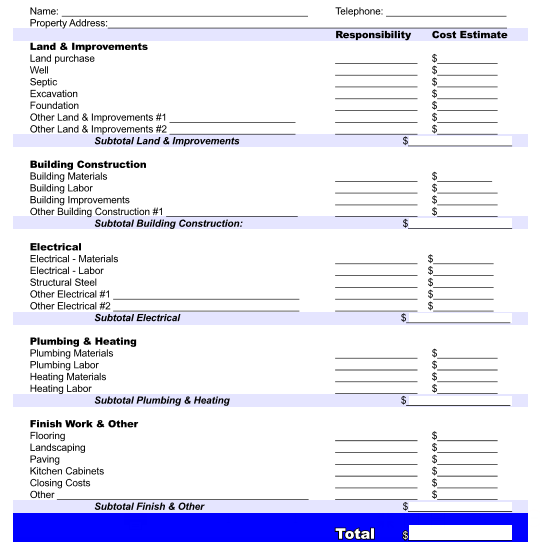
When it comes to embarking on a residential construction project, one of the most crucial aspects to consider is the budget. Having a well-planned and detailed budget can make a significant difference in the success of your project.
In this article, we will delve into the importance of a residential construction budget, why it is essential, how to create one effectively, examples of budget templates, and tips for successful budgeting.
What is a Residential Construction Budget?
A residential construction budget is a detailed document that outlines all the expenses involved in building or renovating a home. It includes costs for materials, labor, permits, equipment rentals, and any other expenses associated with the construction process.
This budget serves as a roadmap to help you stay on track financially throughout the project.
Why is a Residential Construction Budget Important?
Having a residential construction budget is crucial for several reasons. Firstly, it helps you set realistic financial goals for your project and ensures that you do not overspend. It also allows you to allocate funds to different aspects of the construction process, helping you prioritize expenses and avoid unnecessary costs.
Additionally, a well-planned budget can help you secure financing from lenders or investors by demonstrating a clear understanding of your financial needs.
How to Create a Residential Construction Budget
Creating a residential construction budget may seem like a daunting task, but with the right approach, it can be a manageable process. Here are some steps to help you create an effective budget:
- Evaluate Your Financial Situation. Before you start planning your budget, assess your current financial situation and determine how much you can realistically spend on the project.
- Research Costs. Research the costs of materials, labor, permits, and other expenses specific to your location and project requirements.
- Break Down Expenses. Divide your budget into categories such as materials, labor, permits, equipment, and contingency funds to ensure all expenses are accounted for.
- Use a Template. Utilize residential construction budget templates available online to help you organize your expenses and create a comprehensive budget.
- Review and Adjust. Regularly review and adjust your budget as needed to accommodate any changes or unexpected expenses that may arise during the construction process.
Examples of Residential Construction Budget Templates
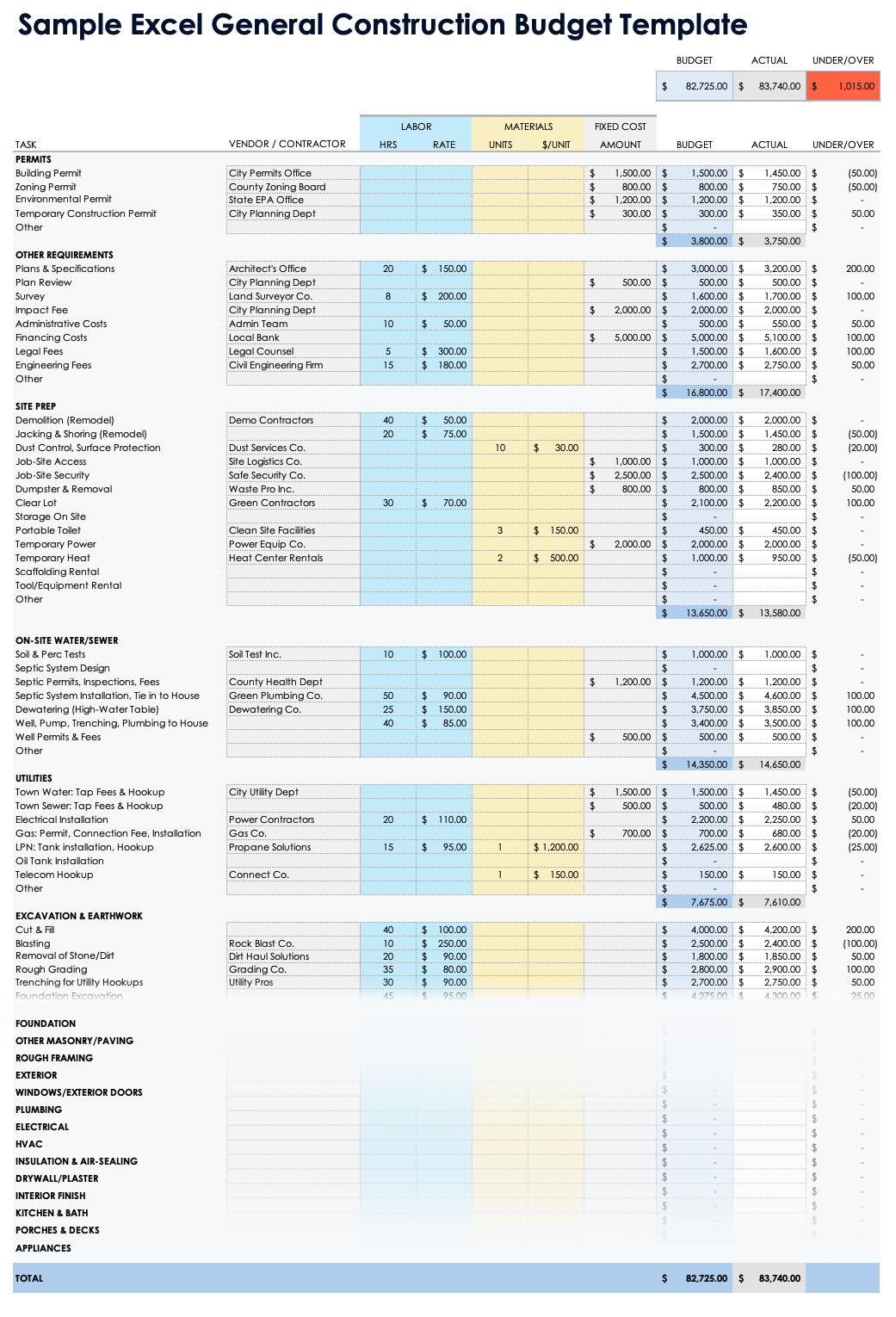
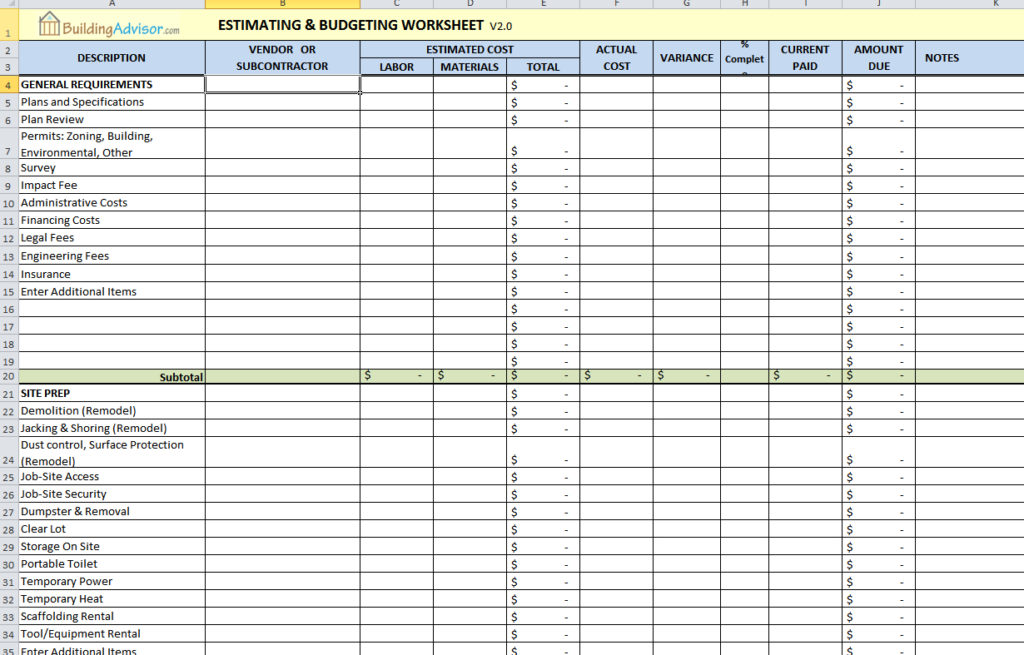
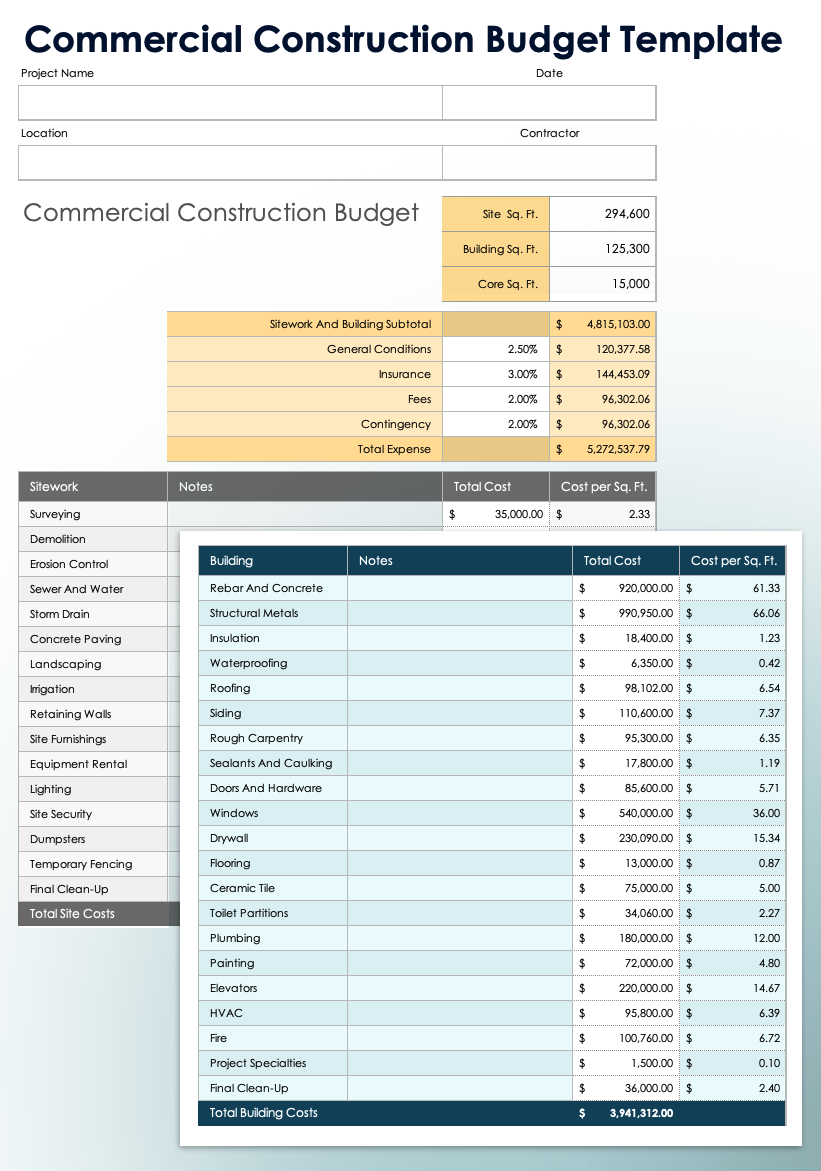
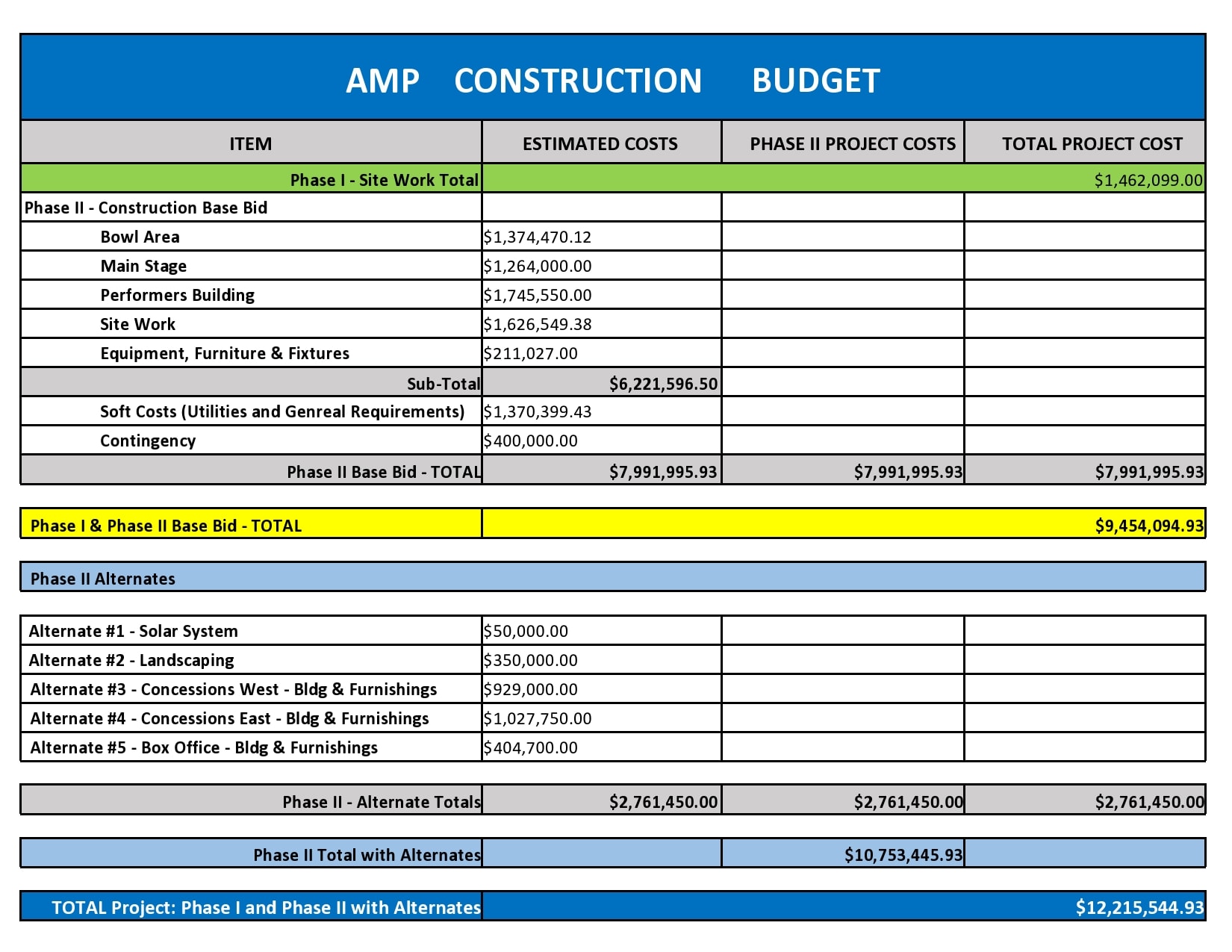
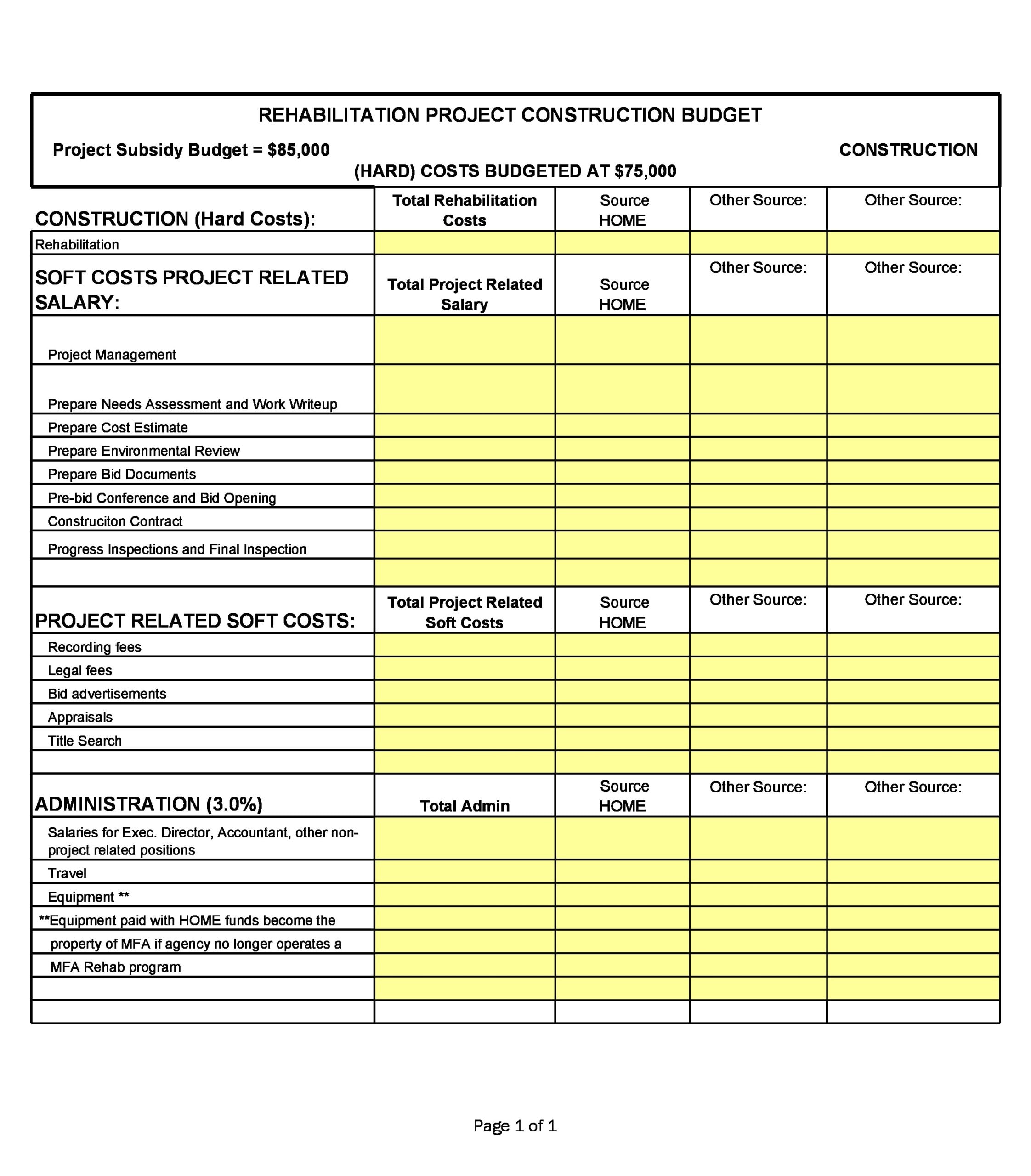
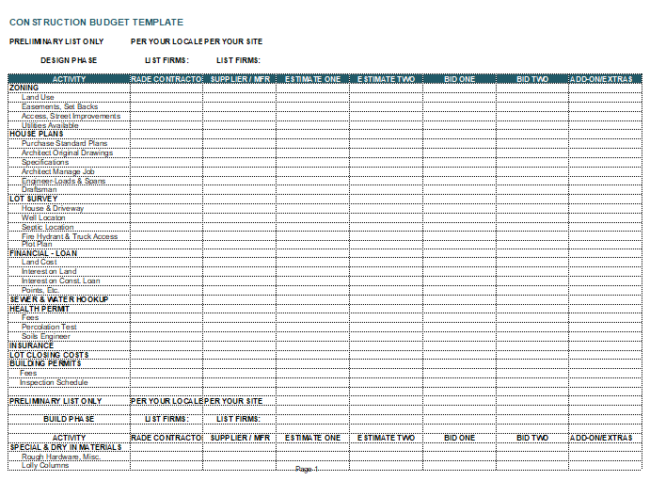
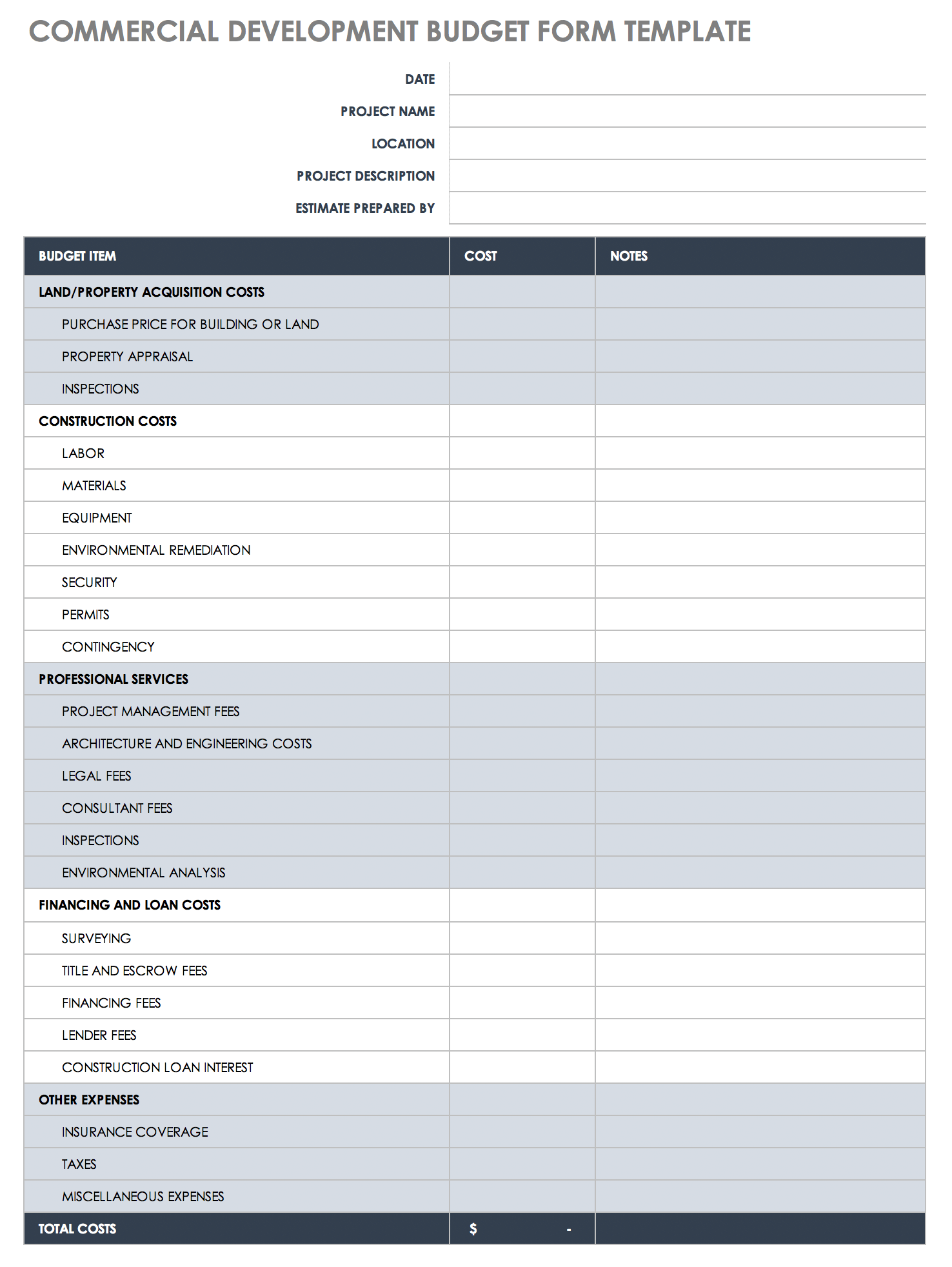
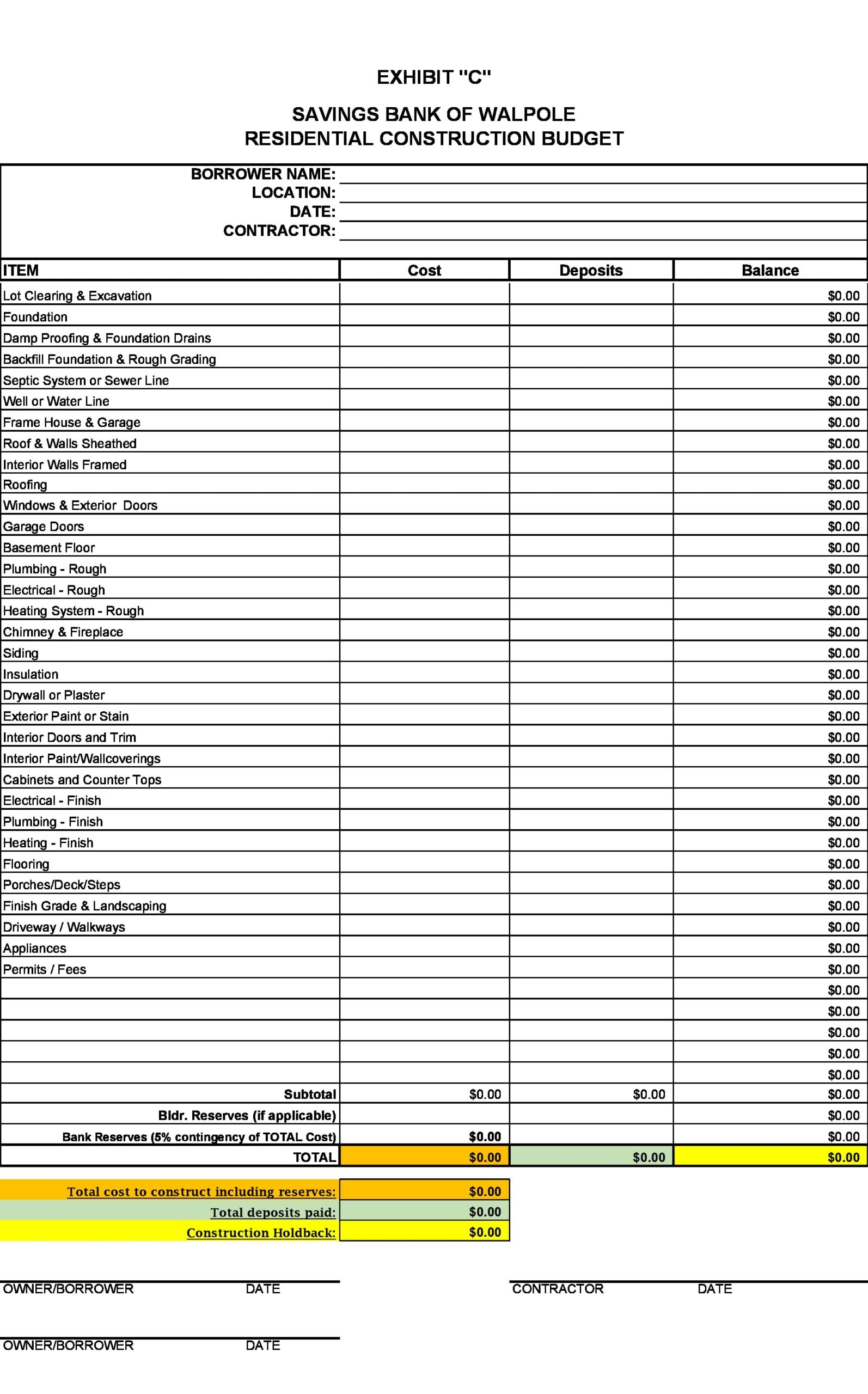
Tips for Successful Residential Construction Budgeting
Creating and sticking to a residential construction budget can be challenging, but with the right approach, you can ensure the financial success of your project. Here are some tips to help you effectively manage your budget:
- Set Realistic Goals. Establish realistic financial goals for your project based on your budget and financial capabilities.
- Communicate with Stakeholders. Keep all stakeholders informed about the budget and involve them in decision-making processes to avoid surprises.
- Track Expenses Regularly. Monitor your expenses regularly to identify any potential overspending or areas where costs can be reduced.
- Plan for Contingencies. Include a contingency fund in your budget to account for unexpected expenses or changes in the project scope.
- Seek Professional Advice. Consult with a financial advisor or construction project manager to ensure your budget is comprehensive and accurately reflects the project’s needs.
By following these tips and utilizing residential construction budget templates, you can effectively manage your project’s finances and ensure its success. Remember that a well-planned budget is the key to a smooth and successful construction process.
Residential Construction Budget Template – Download
- Free Student Reference Letter Template (Word) - February 22, 2026
- Free Printable Greeting Card Template - February 19, 2026
- Printable Homeschooling Schedule Template - February 18, 2026